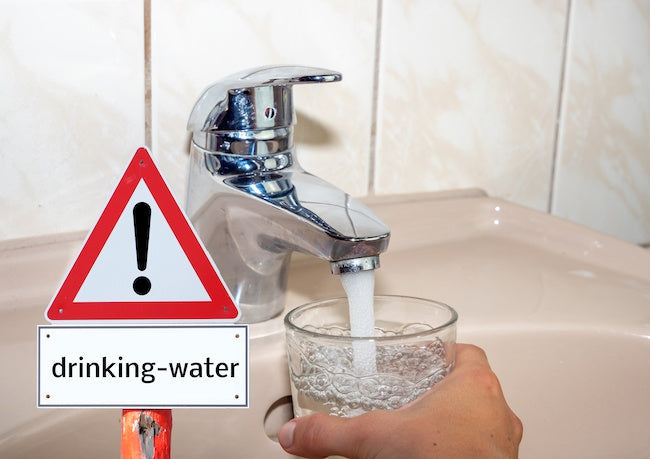
Understanding the Dangers of Lead in Tap Water
Water is an essential element for the human body. It is vital to stay hydrated and maintain overall health. However, recent studies show that tap water in many parts of the world contains heavy metals including lead, which can have severe effects on health. The issue is particularly concerning for children, pregnant women, and elderly people. In this blog post, we will discuss the dangers of lead in tap water, how it gets into the water, its effect on health, and ways to reduce it.
Lead is a toxic heavy metal that affects almost every organ in our body. There is a reason it has been removed from petrol supplies, paints, toys and the greater majority of household products.
Children are much more vulnerable to the effects of lead than adults, as their brains and nervous systems are still developing. Drinking tap water contaminated with lead can lead to learning difficulties, developmental delays, neurological and behavioural issues and low IQ levels in children. Pregnant women who drink lead-contaminated tap water can also cause irreversible harm to their unborn children.
The harmful effects of lead on human health are well-documented. Long-term exposure to lead can lead to hypertension, heart diseases, kidney diseases, and even certain types of cancer, anxiety, depression. It is essential to take steps to minimise lead exposure and ensure that the water we drink is free from such contaminants.
The primary cause of lead contamination in tap water is old lead pipes used to deliver water to homes. Many homes and buildings built before the 1980s used lead pipes, which can corrode over time, and tiny lead particles can enter the water supply. Lead can also be present in common brass taps, fittings, and valves. It is not uncommon for localised testing to show lead contamination of up to 40 times what is considered safe levels. Although there really is no safe level as it is cumulative in our bodies over time.
One does not need to look far to find instances where NZ tap water supplies have failed to meet minimal safe levels and there have been multiple instances in places such as Otago, Christchurch and many others, the chances are that on any given day most regions would likely show some levels simply due to infrastructure that delivers water to homes and commercial premises.

Municipal water supplies also use additives like chlorine to purify water, which can react with lead, leading to further contamination.
Whilst millions are budgeted to upgrade and replace infrastructure, New Zealand has long had issues with lead contamination and there has been little action from government to introduce stricter measures to ensure products containing lead do not enter the marketplace. Master Plumbers have advised that it is still possible to buy tap ware in this country that contains lead at levels that far exceed New Zealand’s drinking-water standard limits of 10 micrograms per litre. In 2021 Master Plumbers tested five taps purchased online. It found three of the taps contained lead above the allowable limit—with one a shocking 11 times over this limit. This in itself indicates there is the highest likelihood that your tap water may well be contaminated even at the point of use even if the local infrastructure has been upgraded.
One of the best ways to reduce lead exposure is by using a quality water filtration system such as a Waters Co filter that specifically targets lead can help eliminate the element from getting back into your drinking water.
If you live in a home built before 1980 and are not sure if you have lead pipes, it's crucial to get your water tested. You can contact a professional testing company to get your water tested for lead. You can also ask your local water company for a water quality report to see if lead levels exceed the acceptable limits. Even modern houses are still at risk from contamination caused by ageing/outdated infrastructure and substandard quality fittings.
Ensuring you have clean drinking water free from harmful contaminants like lead is crucial for maintaining overall health. We have discussed the dangers of lead in tap water, its sources, and its effects on health. By taking simple steps like using a Waters Co water filtration system, getting your water tested, and ensuring your plumbing is lead-free, you can reduce the risk of exposure to lead and protect yourself and your loved ones. Don't take chances with your health; safeguard your drinking water today.
References:
https://www.ncbi.nlm.nih.gov/pmc/articles/PMC2917196/
